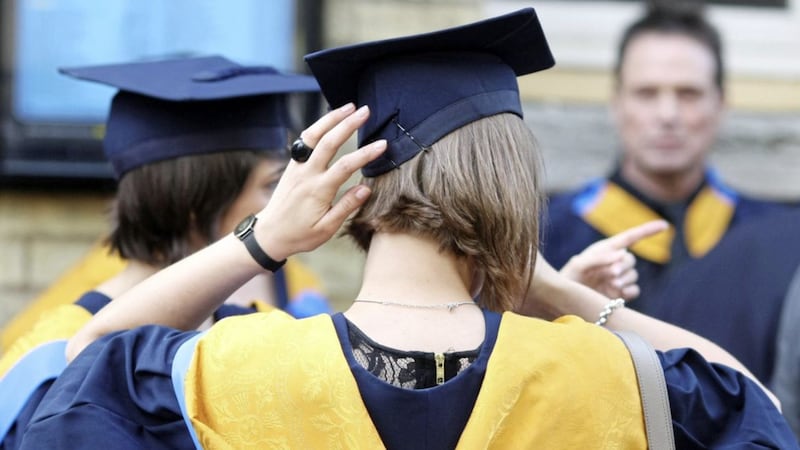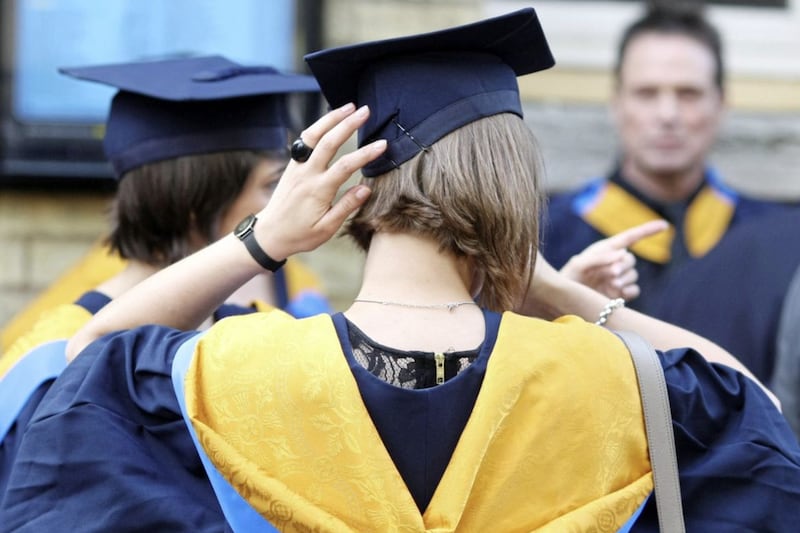HALF of the universities and colleges in Britain and Northern Ireland have seen a fall in the proportion of students that say they are happy with their experience.
The latest National Student Survey (NSS) reveals that the overall percentage has dropped for the second year in a row.
In total, 83 per cent said they were content, down from 84 last year.
Northern Ireland's main higher education providers were all above the overall UK figure.
Of the 348 universities and colleges for which there are comparable figures for 2017 and 2018, 51 per cent have seen a fall in overall satisfaction, while two in five (41 per cent) saw a rise.
The figures, published by the Office for Students (OfS), are based on the views of more than 320,000 students - mainly final-year undergraduates, and cover universities and colleges that offer higher education courses.
Students are asked how happy they are with factors such as academic support, learning resources, assessment and feedback, as well as their overall satisfaction with their experience of higher education.
Nicola Dandridge, OfS chief executive, said: "While we have seen overall satisfaction fall by 1 per cent, many questions have maintained their satisfaction levels including the student voice, academic support, learning resources and assessment and feedback questions.
"While I am pleased to see the overall satisfaction rate remains high, the data shows that there is more work to be done to ensure all students have a high quality and fulfilling experience of higher education that enriches their lives and careers."
Among Russell Group institutions - highly selective universities - the University of Leeds had the highest overall satisfaction rates at 88 per cent.
The London School of Economics and Political Science (LSE) had the lowest of the 22 Russell Group universities included in the data at 71 per cent.
Minouche Shafik, LSE director, said: "We have introduced significant reforms across campus but we know it will take time before these changes are reflected in the NSS. We are listening to our students and we are more motivated than ever to improve their experience at LSE.
"Improving student satisfaction is our top priority."
Oxford and Cambridge are missing from the results as neither had the required number of students taking part to be included in the survey.
A Russell Group spokeswoman said overall student satisfaction levels remain high.
"This shows our universities are delivering for students, with excellent learning resources and intellectually stimulating courses," she said.
"Our members are always looking to improve the experience they offer and they continue to invest in improvements in teaching and facilities, such as high-quality library and IT services.
"The NSS is an important resource to help our universities monitor what matters most to students and where we need to get better. We would encourage prospective students to always look beyond the statistics as no one measure will tell you if a course is right for you."
Alistair Jarvis, chief executive of vice-chancellors' group Universities UK, said: "We are proud that student satisfaction remains very high at universities across the UK. This is down to the hard work, brilliance and dedication of university staff.
"Universities have prioritised investment in teaching, facilities and learning support, in response to feedback from students. Universities want every student to fulfil their potential and will continue to strive to create the best possible environment and conditions for them to succeed."
::
Satisfaction rates in Northern Ireland
The Open University 87 per cent
Stranmillis University College 87 per cent
University of Ulster 87 per cent
St Mary's University College 86 per cent
Queen's University of Belfast 83 per cent





